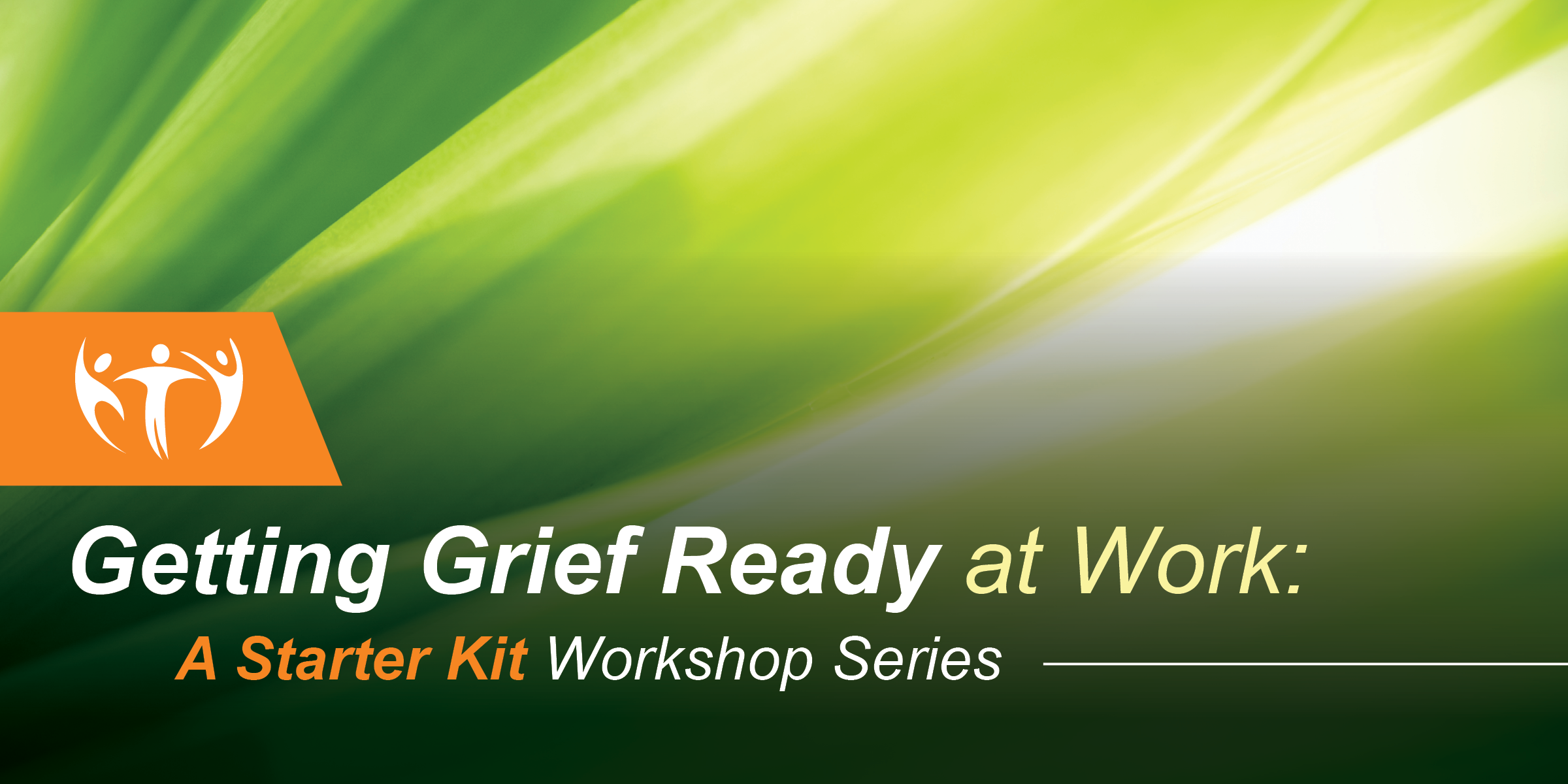Home > Getting Grief-Ready at Work: A Starter Kit Workshop Series

Part 1: November 28th, 2022
Part 2: December 5th, 2022
All workshops are from 3:30 - 5:00pm PT
The Pacific Southwest MHTTC team provides the mental health and school mental health workforces with evidence-based practices to inform their work in the field. In other words, we support those who are supporting, which in itself is an evidence-based approach. To address the need for evidence-based grief support in the mental health field, we published Fostering Grief Ready Workplaces: A Starter Kit for Mental Health and School Mental Health Leadership (March, 2022). This Starter Kit provides essential guidance so you and your organization can support a grieving workforce.
This winter, join us to explore how school and school mental health leaders can utilize the Starter Kit in their own management, supervision, and leadership. For many, the winter holidays are a time when family and friends gather for celebration; as a result,it can be a particularly difficult time for those who are grieving, even if the death occurred more than a year prior. By exploring the Starter Kit, we can be ready and responsive, and help cultivate a grief-sensitive culture.
It’s the end of 2022, and the impact of COVID and collective grief and loss continues to permeate our workplaces. The need to foster grief-ready (and responsive) workplaces (cultures, climates, management and leadership) is pressing.
We know that while the need is high, many of us are under-trained in grief response and recovery practices. Moreover, many are experiencing our own grief.
Whether that grief is spurred by a death within our own organizations (e.g., the death of a colleague, the death of a colleague’s relative, friend, impactful person), the school community (e.g., the passing of a teacher, coach, administrator, or student), or a death just outside of it (e.g., in the family or friend networks of clients/students and staff), grief readiness is inherent in any conversation about creating emotionally and socially safe school and mental health service environments.
In a two-part workshop series, we offer a text-study exploration of Fostering Grief Ready Workplaces: A Starter Kit for Mental Health and School Mental Health Leadership (March, 2022).
3:30 - 5:00 p.m. PT (Find your time zone here)
3:30 - 5:00 p.m. PT (Find your time zone here)
Each session includes opportunities to engage in questions, discussion, and discourse with our faculty and each other.

David J Schonfeld, MD, FAAP established and directs the National Center for School Crisis and Bereavement (www.schoolcrisiscenter.org), located at Children’s Hospital Los Angeles. He is Professor of Clinical Pediatrics at Keck School of Medicine. Prior faculty positions have been in the Department of Pediatrics at Yale University School of Medicine; Head of the Section of Developmental and Behavioral Pediatrics at Cincinnati Children’s Hospital Medical Center; and Pediatrician-in-Chief at St. Christopher’s Hospital for Children and Chair of Pediatrics at Drexel University School of Medicine.
Dr. Schonfeld has provided more than 1,000 presentations nationally and internationally on the topics of childhood bereavement and crisis preparedness and response. Dr. Schonfeld was Co-Director of the Office of Decedent Affairs at Yale-New Haven Hospital when it was formed in 1997 (he continued in that role until 2004 before relocating) -- the office oversaw all patient death-related issues for the hospital and Dr. Schonfeld took the lead on healthcare provider support. For example, within that role he conducted and evaluated an intensive physician training program (e.g., for adult medicine Emergency Department residents and pediatric residents) on death notification that drew on the expertise of highly experienced standardized patients that were also equity actresses for simulations; impact was assessed by coding of taped simulations. He oversaw and taught the mental health module of the European Masters in Disaster Medicine course for over a decade, including teaching a full day session for the residential course in Italy (this was attended by physicians of all backgrounds and countries). He was invited by the American Academy of Pediatrics (AAP) to speak on physician burnout and organizational approaches for wellness for a special session of the AAP’s National Conference and Exhibition in 2017 -- Peds 21 – Pediatricians Leading Change in Physician Health and Wellness

Leora Wolf-Prusan, EdD, is the Region 9 School Mental Health field director for the Mental Health Technology Transfer Center (MHTTC), and the Project Director of the School Crisis Recovery & Renewal (SCRR) project, in addition to many other facilitation projects. Previous roles include a national field director of a SAMHSA initiative (Resilience in Communities after Stress & Trauma), technical assistance for the Student Mental Health Program for California’s Community Colleges, CalWorks and more. With years of coaching, training and facilitating learning and community building, Wolf-Prusan is dedicated to work focused on educator and workplace mental health, wellness, and trauma-informed & healing-centered approaches operates through a framework in which public health, social work, and education intersect. Her research examines how teachers cognitively appraise the gang/gun-related deaths of students, what factors contribute to teachers building resiliency, and what supports teachers need from the school system in the event of a student homicide or other traumas.
She received a BA in international relations and a BA in Spanish with a minor in Social & Ethnic Relations from the University of California, Davis; a teaching credential from Mills College; and an EdD in educational leadership from the University of California, Los Angeles. Leora is a full-spectrum doula.

Mary Pauline Diaz-Frasene, M.A., is the Senior Program Manager for Workplace Resilience. Prior to Workplace Resilience and its sister program, The People’s Supper, Mary Pauline’s career focused on direct services roles with adults, youth and families experiencing homelessness, from intensive high-fidelity wraparound to a low-barrier drop-in center in an alley. She led the development and ongoing coordination of care resources and peer-led processing groups for staff at the largest social and community services non-profit in Washington state. During the first year of COVID-19, she served as a hospital chaplain at a regional trauma center and a Veterans Affairs hospital.
Diaz-Frasene received a Master of Arts in Theology and Culture from The Seattle School of Theology & Psychology, where her culminating work focused on grief as a practice in collective resistance to systemic injustice, using Filipinx diasporic experience as a focal point.